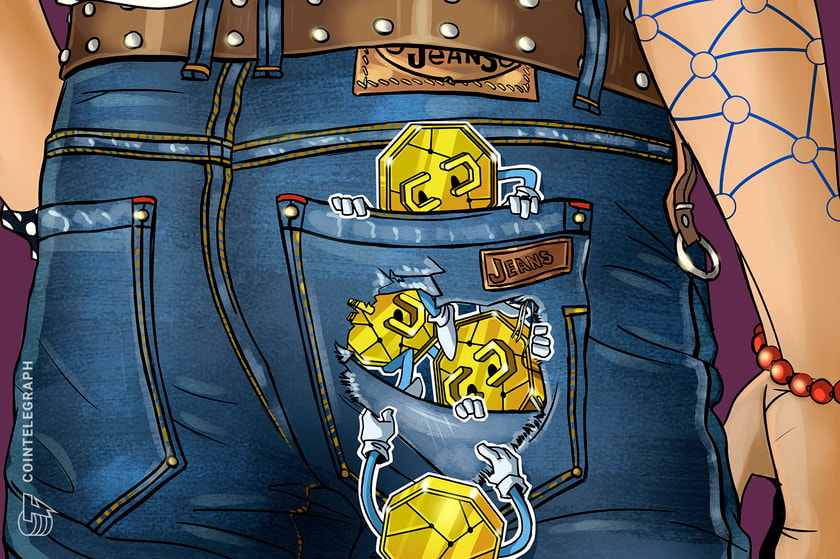Cointelegraph Consulting: Aave’s avenue to over $11 billion in TVL
Although Aave was launched in the beginning of 2020, it has experienced significant growth in total deposits and daily deposits since the summer of 2020. Overall, Aave has totalled over $45 billion in deposits, with 2021 seeing the protocol average $231 million in deposits per day. More than 46,000 unique Ethereum users have become lenders on Aave, with the average all-time deposit reaching $173,000.
Aave’s recent launch on Polygon and the introduction of its liquidity program was followed by a rapid increase in total value locked from $5.4 billion on April 25 to roughly $11.4 billion on May 12, according to Dapp Radar data. So, here is a look at the previous usage of the protocol.

Notably, the average deposit is significantly greater than the median, which is only $3,500. Comparing these numbers gives insight into the portrait of Aave users: There is a significant share of retail lenders on Aave.
However, imagine if Elon Musk walking into a room made every person in that room a billionaire, on average. Something comparable happens when whales who hold millions at their addresses move the average away from the median on Aave. Nevertheless, the presence of whales in DeFi is hardly surprising for anyone.
Borrowing on Aave appears to be very volatile, with some days initiating less than $10 million in loans and others more than $400 million. The average through 2021 has been $58 million per day. There have been roughly 15,000 unique Ethereum borrowers on Aave with a total of 117,000 borrow events logged on the Ethereum blockchain, highlighting the fact that borrowing may be less in demand among Aave users.

The breakdown of the most liquidated assets could help reveal the source of Aave’s new liquidity mining program. The majority of the most liquidated assets, including Wrapped Ether (WETH), Ether (ETH), LINK and Wrapped Bitcoin (WBTC), are volatile, which makes them more prone to liquidations.

The recently launched liquidity mining program will increase deposit annual percentage yield for many different digital assets, including USD Coin (USDC), ETH and WBTC, which should help Aave catch up with its major competitor, Compound.
However, the program rewards are allocated to lenders and borrowers differently depending on the underlying asset, since Aave is looking for means to help users decrease the risk of liquidation.
Aave Request for Comment (ARC): Add $LINK Liquidity Mining Rewards
I am proposing that the existing $AAVE Liquidity Mining program on @AaveAave V2 be extended to include $LINK as an asset eligible for $stkAAVE rewards
Governance discussion and poll https://t.co/H6zGImuxQn
— ChainLinkGod.eth 2.0 (@ChainLinkGod) May 6, 2021
To incentivize usage of stablecoins, Aave distributes rewards to stablecoin lenders and borrowers equally. For riskier assets, such as WBTC and ETH, borrowers receive only 5% of the rewards. This two-sided approach is designed to help Aave eliminate risky borrowing.
Notably, LINK, one of the most popular assets on Aave, was not included in the liquidity mining program at all, which incurred feedback from the Aave community:
For more insights on Aave usage, download the full issue of the Cointelegraph Consulting’s bi-weekly newsletter.
The facts and figures
As for other trends driving the industry, venture capital activity in the blockchain space reached a new milestone as Paxos and Bitso raised more than $250 million each in the last two weeks. Cumulatively, the top five largest funding rounds brought more than $1.5 billion to the industry in 2021.

The crypto investment products ecosystem is evolving rapidly, with new products aiming to give investors exposure to crypto-related firms and Polkadot-native tokens. Traditional crypto investment vehicles also saw growth as the Chicago Mercantile Exchange launched a new Micro Bitcoin futures contract. However, one key product is still in limbo as the SEC is taking an additional 45 days to review a Bitcoin exchange-traded fund application from VanEck.
Two VC funds are set to be galvanising the development of the crypto world soon as Andreessen Horowitz is looking to raise up to $1 billion to invest in crypto, and $165 million VC fund Bitkraft Ventures confirms that it’s taking investing in crypto seriously by partnering with Delphi Digital.
Cointelegraph’s Market Insights Newsletter shares our knowledge on the fundamentals that move the digital asset market. With market intelligence from one of the industry’s leading analytics providers, Covalent, the newsletter dives into the latest data on social media sentiment, on-chain metrics and derivatives.
We also review the industry’s most important news, including mergers and acquisitions, changes in the regulatory landscape, and enterprise blockchain integrations. Sign up now to be the first to receive these insights. All past editions of Market Insights are also available on Cointelegraph.com.









